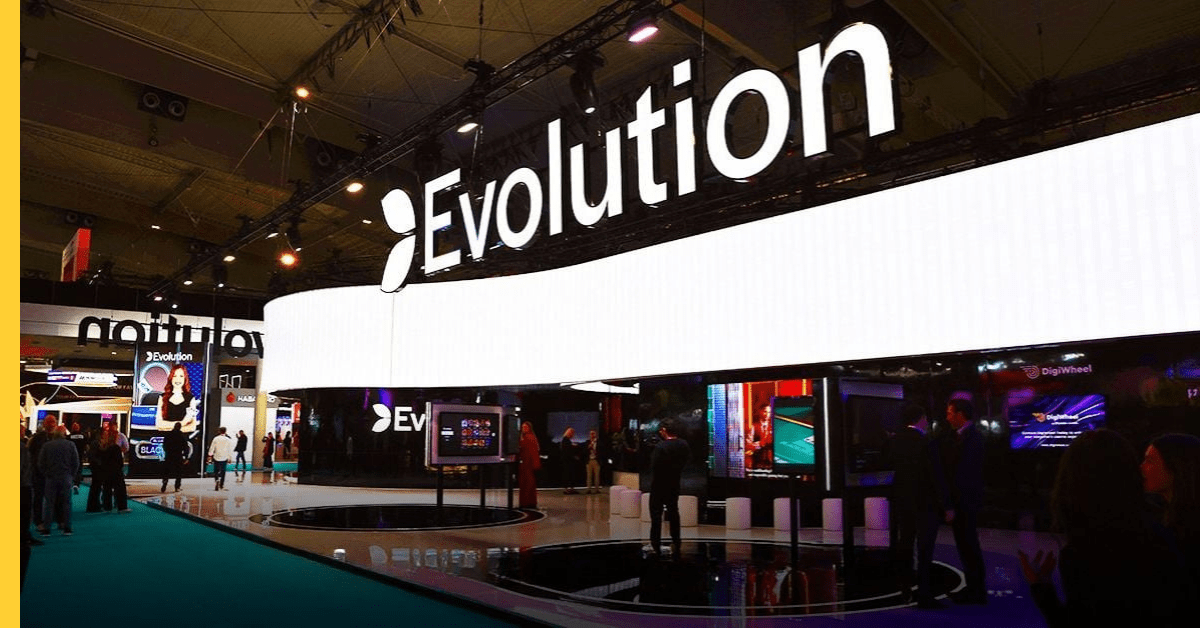
Evolution shares fell nearly 9% in early trading today (23 October) following the supplier’s Q3 results, as investors reacted to a quarter of declining revenue and a mounting legal battle with rival Playtech.
It has been a turbulent week for the live casino giant. On Tuesday, Evolution confirmed that Playtech had commissioned a 2021 intelligence report alleging Evolution had violated international sanctions. The report, Evolution said, resulted in multi-billion-dollar damage to the company.
The revelation temporarily crushed Playtech’s own share price on the day, sending it down 34% in morning trading. The company later said it stands behind the Evolution report.
Unsurprisingly, the Playtech dispute overshadowed questions on growth, margin trends and guidance during today’s earnings call about Evolution’s Q3 results.
Analysts pressed Evolution’s leadership on its intentions, timeline and end-game.
Morgan Stanley’s Ed Young asked directly what the company hoped to achieve: was this about financial damages, regulatory consequences for Playtech, or something else?
CEO Martin Carlesund stated the company is motivated not only by outcomes, but by principle.
“I look for fairness. Justice. It’s horrible what has been done to us. Someone has been hiding behind layers of companies, hiding their true identity,” he said.
When Citi’s Monique Pollard pushed for clarity on how Evolution plans to quantify damages, particularly whether they would be linked to share-price impact following the original reports, Carlesund declined to provide specifics, calling the damages “severe” but insisting the assessment would come later.
He stressed that this week’s development was procedural, not a new escalation.
“We finally have the real name. The legal process now continues with depositions and information sharing,” he said, acknowledging that the company expects legal costs to be high, but arguing the fight is necessary to protect Evolution and its shareholders.
Beyond the call and following the revelation, investors, analysts, and the wider industry have started asking a broader question: not just what Evolution hopes to achieve from the case, but what the conflict could mean in the long term. Could it reshape competitive dynamics? Might it even lead to a potential takeover?
Several industry sources speaking to NEXT.io described a potential Evolution takeover of Playtech as “not impossible,” though they cautioned that legal proceedings must first run their course and that the idea remains speculative for now.
That speculation reflects a broader mood in the market: whatever happens, the consequences are unlikely to remain confined to courtrooms.
Alphavalue’s Virendra Chauhan told NEXT.io that a deal is difficult to imagine in the near term, especially with litigation expected to stretch into 2026 and competition authorities almost certain to scrutinise any attempt to merge two major B2B casino players.
Moreover, Chauhan said, “the findings can potentially translate into operational drag for Playtech.
“Even if there is merit in the arguments, which I think is unlikely, the method of covert engagement will fuel an environment of distrust in a highly regulated industry built on trust.”
In a sector built on regulatory trust, he suggested, the method may be remembered longer than the message.
In a note to investors, Peel Hunt’s Ivor Jones struck a different tone, noting that Playtech appears fully prepared for a drawn-out fight and warning that both sides now carry reputational risk as the case moves into a public legal forum.
“Until the litigation concludes, we believe Playtech’s share price will remain impacted by uncertainty. We expect public court papers will give investors a sense of the scale of downside risk,” Jones said.
“If, in due course, the litigation results in a win for Playtech, then the discount that has opened up today should, in our view, close. The speed and tone of Playtech’s response to Evolution encourage us that it has a strong basis for engaging in the threatened litigation.”
Meanwhile, Regulus Partners delivered the sharpest rebuke, describing Playtech’s actions as “self-defeating” and arguing that the company fired a shot that failed to land, only to injure itself instead.
The firm warned that the gambling industry, already battling perception issues, now faces yet another public airing of “dirty laundry” at the worst possible time.
Despite mixed opinions on who’s right and who’s wrong, what seems clear is that the industry is bracing for a long, messy process that could reshape relationships, valuations and competitive narratives well beyond 2026.
#iGaming #MergersAndAcquisitions #GamingIndustry #Regulation #BusinessNews